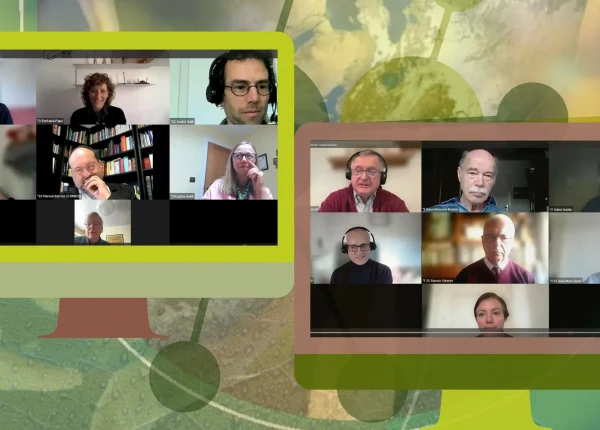Called to unity – Toward an ecology of relationships

On March 2, 2024, experts from ten European countries gathered in a webinar titled “Called to Unity – Towards an Ecology of Relationships,” organized by the Together for Europe network, for a profound dialogue and valuable exchange of ideas to contribute to constructing a sustainable future. The event is part of the DialogUE project, which promotes cohesion and dialogue among European citizens. The important commitment of the European Commission in presenting the “European Green Deal,” an ambitious strategy to address environmental challenges, including dramatic climate change, was highlighted.
Participants discussed the importance of a holistic vision of ecology, which concerns the physical environment and our relationship with creation and each other. This vision, termed “ecology of relationships,” emphasizes the interconnectedness of all life forms and the need to act together to address global challenges. The centrality of human and divine relationships in this context was highlighted, with an appeal for greater solidarity and collaboration.
Among the speakers, Professor Nicolaos Asproulis, Vice-Director of the Academy of Volos (Greece) for theological studies, emphasized the importance of interpersonal relationships and communion as a foundation for addressing ecological challenges. Professor Stefania Papa from the University of Campania delved into the intrinsic relationality of nature, highlighting how every living being is part of a complex network of interactions.
The experts’ interventions underscored the importance of integrating ecological principles into various dimensions of daily life. Various initiatives were presented, from renewable energy communities to promoting sustainable investments. The urgency of systemic changes at the global level to address environmental and social challenges was also discussed.
The event highlighted the importance of receiving and implementing the teachings of Laudato Si’, the Pope’s document that has had a significant impact beyond the Catholic world. Ecumenism emerged as a key element in addressing environmental challenges, with various churches and religious organizations collaborating to promote integral ecology.
Dr. Nikolaos Asproulis, with his background in Eastern theological vision, articulated the centrality of human relationships in the context of divine creation. Don Emanuel Enrique Barrios, Secretary-General of COMECE in Brussels, instead focused on the reception of the principles of Laudato Si’ in ecclesial and social life.
Dr. Lorna Gold of Faithinvest offered a financial perspective, emphasizing the importance of changing investment systems to promote responsible management of financial resources.
Finally, concrete experiences of applying inclusive ecology, embracing both the natural and social environment, were shared. From local actions to reduce noise pollution to ecumenical initiatives for the conservation of creation, a wide range of practices aimed at promoting positive change emerged. These on-the-ground experiences further enriched the debate and underscored the importance of translating ecological ideals into concrete actions for a tangible impact on our world.


